detail profile amaia merino
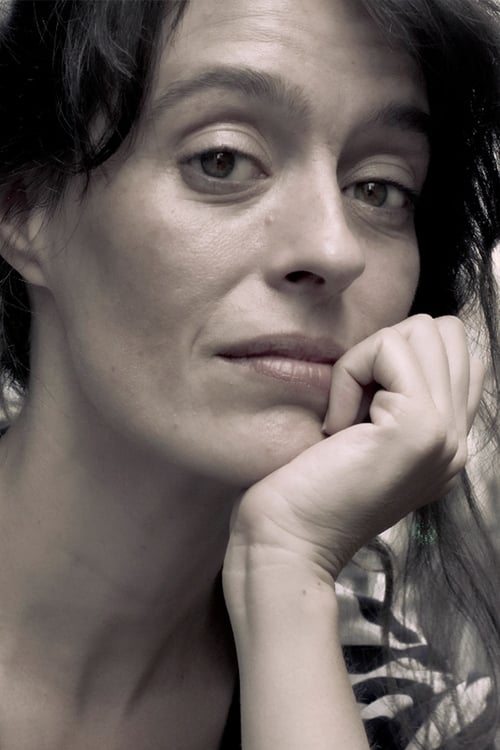
Amaia Merino
Amaia Merino
atau dikenal sebagai
Riwayat Hidup
Amaia Merino (San Sebastián, 1970) is an actress, director, writer and editor.
She lives in Ecuador, where she works as an editor and screenwriter of non-fiction films.
During the last fifteen years he has made feature films such as Blak Mama, Más allá del Mall, Resonancia, En espera, El pan nuestro, 1809-1810 Mientras llega el día y Asier ETA biok (Asier y yo).
Info Pribadi
Peran Yang Di Mainkan Amaia Merino
 At the end of the 19th...
At the end of the 19th...Chuzalongo 2024
At the end of the 19th century, a boy appears in an Andean village. Nicanor, the village priest, discovers that the child’s blood causes the crops to bear fruit magically, but for the boy to live, he must be fed human blood.
 40 years after ETA kidnapped her family...
40 years after ETA kidnapped her family...Let It Know 2024
40 years after ETA kidnapped her family and the State tortured her father to death, Tamara Muruetagoiena embarks on a tireless quest for truth and justice. Tamara recounts her family tragedy, face to face: the revolutionary tax, the kidnapping by an ETA commando unit for 17 days, the subsequent family breakdown, persecution by the State machinery, political pressure, the trial, her parents' arrest, the torture, murder… But also her path to the truth, recognition, and the use of dialogue as the key tool in resolving conflict.
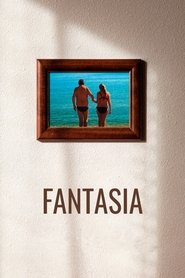 Siblings Amaia and Aitor are about...
Siblings Amaia and Aitor are about...Fantasía 2021
Siblings Amaia and Aitor are about to turn fifty. They have no children. From a very young age they have lived apart from their parents, Kontxi and Iñaki, now retired. One summer they all meet up on the cruise ship 'Fantasía'. On the high seas time seems to have stopped, but beyond the horizon reality continues to forge its way ahead tirelessly.
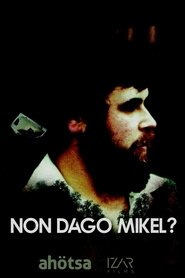 DonostiaSan Sebastin Basque Country Spain November 26...
DonostiaSan Sebastin Basque Country Spain November 26...Where Is Mikel? 2021
Donostia-San Sebastián, Basque Country, Spain, November 26th, 1985, at night. Mikel Zabalza, a young bus driver, is arrested along with other people by the Guardia Civil as part of an operation against the ruthless terrorist gang ETA. When the other detainees are released, they denounce that they have been brutally tortured in the Intxaurrondo facilities. Besides, Mikel is not among them: Mikel has disappeared.
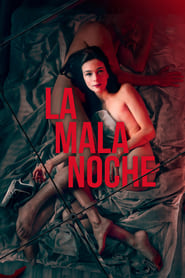 A beautiful woman turns to prostitution...
A beautiful woman turns to prostitution...The Longest Night 2019
A beautiful woman turns to prostitution. She must surrender her income to the leader of a human trafficking ring, but her daughter’s illness and a drug addiction prevent her from delivering her usual share. An unexpected event will give her the opportunity to stop obeying and take justice into her own hands.
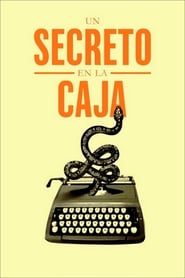 The life and works of Ecuadorian...
The life and works of Ecuadorian...A Secret in the Box 2017
The life and works of Ecuadorian writer Marcelo Chiriboga, a key figure of the Latin American literature and member of the “boom” generation. Through interviews, visits to different cities, archival footage and his most important book, a puzzle is woven that blurs the boundaries between reality and fiction.
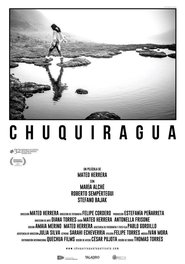 Agustn escaped to the moor to...
Agustn escaped to the moor to...Chuquiragua 2016
Agustín escaped to the moor to finish his thesis, he spends his days writing, feeding himself and giving small walks through a place covered by scrubland, steep cliffs and abyss that remain hidden behind an almost permanent fog. Everything changes when Lucía and her boyfriend Santiago arrive and set up their tent next to Augustín’s. What began as a few quiet days in the countryside gradually become a silent nightmare.
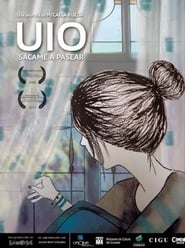 Starting her senior year in high...
Starting her senior year in high...Take Me for a Ride 2016
Starting her senior year in high school, Sara doesn't have many friends and is caught between an overbearing mother, and a more understanding father. With uneasiness at school and tension in the household, Sara escapes to smoke in a little alley alone – that is – until Andrea, a new classmate, arrives. A close friendship develops to all that can see, but behind closed doors, an intimate relationship unfolds, which, when discovered, throws everything into disarray.
 Alba 11 years old passes her days...
Alba 11 years old passes her days...Alba 2016
Alba, 11 years old, passes her days in silence. She loves little animals. She has learned to cope with her mother's illness, helping her to use the bathroom. Alba plays silently so that her mother can rest during the day. One night Alba's mother gets worse, and has to be taken to the hospital. With no one else to take care of her, Alba is sent to live with her father, who she hasn't seen since she was three years old. Living with her father is almost unbearable. Embarrassment, her first kiss, visits to mother in the hospital, Edgar's tender efforts to get close to her, and bullying at school; these are some of the experiences that pave Alba's journey to puberty and to self-acceptance.
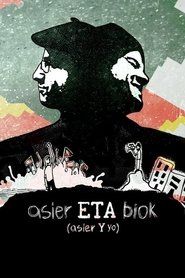 Asier and I grew up in...
Asier and I grew up in...Asier ETA biok 2014
Asier and I grew up in the Basque Country. But one day he disappeared, later I found out he had joined ETA.
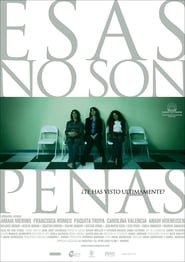 One day five women from Quito...
One day five women from Quito...Esas no son penas 2005
One day five women from Quito, friends in their teens, decide to get back together after fourteen years. Helena is waiting for her second child, Marina lives the ups and downs of infidelity, Diana, an early widow, shares her loneliness with her 15 year old daughter and Tamara has not abandoned the random life of nightclubs, men and drugs. The purpose of their get-together is to visit their old classmate, Alejandra, who is consumed by an illness.
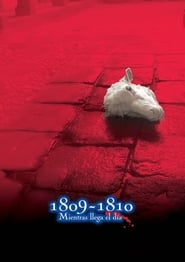 18091810 mientras llega el da is a 2004...
18091810 mientras llega el da is a 2004...1809-1810: mientras llega el día 2004
1809-1810: mientras llega el día is a 2004 Ecuadorian historical-dramatic film, directed by Camilo Luzuriaga and starring Marilú Vaca, Aristides Vargas and Gonzalo Gonzalo. The plot is based on the book by Juan Valdano, and revolves around the events that took place in the city of Quito between August 10, 1809, when the First Cry of Independence took place in the Spanish colony of the Presidency of Quito, and on August 2, 1810, when the Massacre of the Próceres occurred in the hands of the peninsular authorities.
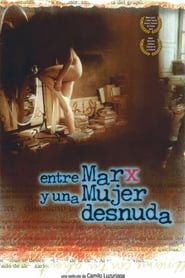 Between Marx and a Naked Woman...
Between Marx and a Naked Woman...Between Marx and a Naked Woman 1996
Between Marx and a Naked Woman is the adaptation of a novel written by Ecuadorian Poet, Jorge Enrique Adoum. The scenes of this film insert us into Ecuador in the sixties, when the electoral struggle, convoked by the military government for a new return to democracy, is in full force. Galvez’s left-wing party must elect its candidate, but he is shoved to one side because of the criticism of the party’s political leadership. While his struggle becomes bitter, he must withstand the frustration of not being able to offer full love to Margaramaría, another party member.
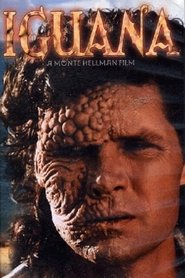 A grotesquely disfigured harpooner called Iguana...
A grotesquely disfigured harpooner called Iguana...Iguana 1988
A grotesquely disfigured harpooner called Iguana is severely mistreated by his fellow sailors on a whaling ship in the 19th century. One night he escapes and takes up residence on a remote island. He makes himself ruler of the island and declares war on mankind. Anyone unfortunate enough to wind up on the island with Iguana is subjected to his cruel tyranny.
 Two soldiers accompanied by two women...
Two soldiers accompanied by two women...Viento de cólera 1988
Two soldiers accompanied by two women enter the Baztán valley on horseback. They are deserters from the army of the Indies who are fleeing to Italy. They arrive to claim the inheritance of one of them, León de Balanza, Captain in Peru and soldier without fortune. They are looking for old Balanzategui who works the land of his ancestors. The old man's refusal to distribute the farmland's land causes a serious conflict.

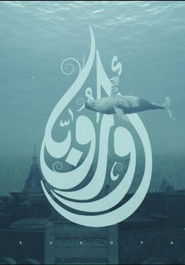 Lubna 10 has arrived in Paris fleeing...
Lubna 10 has arrived in Paris fleeing...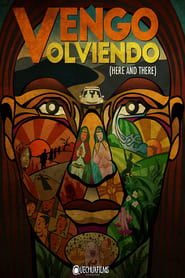 Vengo Volviendo tells the story of...
Vengo Volviendo tells the story of...